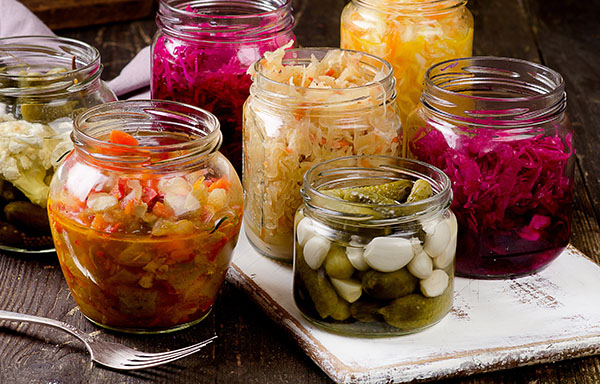“The Body Ecology Diet” introduces a revolutionary approach to health and immunity
- Candidiasis, caused by an overgrowth of the yeast Candida, is a widespread yet often overlooked condition that weakens the immune system, making individuals susceptible to chronic fatigue, autoimmune disorders and other serious health issues.
- Modern diets high in processed sugars, antibiotics and stress create an environment where Candida thrives. This “fungal takeover” in the gut is a significant factor in immune system dysfunction.
- The diet emphasizes the importance of probiotics, recommending foods like homemade sauerkraut and coconut kefir to replenish beneficial gut bacteria. It also encourages the consumption of alkaline, anti-Candida foods such as land and sea vegetables, millet, quinoa, coconut oil and ghee, while using stevia as a natural sweetener.
- The book offers practical tips like auditing your diet, embracing fermented foods, supporting your liver and listening to your body. Co-author Linda Schatz shares her personal journey of overcoming candida, highlighting the diet’s effectiveness in improving conditions like IBS and depression.
- “The Body Ecology Diet” advocates for a return to nature’s wisdom, criticizing the over-reliance on antibiotics and processed foods. It empowers individuals to take control of their health, emphasizing that the body is a self-healing organism when given the right tools.
“The Body Ecology Diet: Recovering Your Health and Rebuilding Your Immunity” by Donna Gates with Linda Schatz presents a comprehensive and scientifically-backed approach to tackling candidiasis, an often-overlooked condition that can wreak havoc on the immune system.
Candidiasis, characterized by an overgrowth of the yeast Candida, is more than just a buzzword; it is a silent epidemic affecting millions. Gates, a pioneer in the field of health and nutrition, describes it as a “fungal takeover” in the gut that weakens the immune system, leaving individuals vulnerable to a host of ailments, from chronic fatigue to autoimmune disorders.
Despite its prevalence, mainstream medicine often overlooks candidiasis – partly due to the complexity of its symptoms and the lack of awareness about its impact. Gates emphasizes that modern diets laden with processed sugars, antibiotics and stress create an ideal environment for Candida to thrive. “It’s like pouring gasoline on a fire,” she says.
The “Body Ecology Diet” aims to starve this yeast and restore balance, allowing the immune system to regain its strength and functionality. It’s not just another restrictive meal plan; it is a holistic framework built on seven core principles that guide individuals toward optimal health:
- Expansion vs. contraction: The diet emphasizes the balance between foods that tighten (like salt) and those that relax (like vegetables), promoting overall harmony within the body.
- Acid-alkaline balance: Maintaining a slightly alkaline pH is crucial for deterring disease. The diet encourages the consumption of alkaline-forming foods to support this balance.
- Blood type compatibility: Recognizing that individuals have different biological needs, the diet suggests tailoring food choices to one’s blood type. For instance, Type O individuals may benefit from a diet higher in meat.
- Cleansing: The body undergoes a natural detoxification process and the diet acknowledges and supports this by welcoming detox symptoms as signs of healing.
- Food combining: Proper food combining is essential for digestive health. The diet advises against mixing proteins with starches, a practice that can lead to digestive discomfort.
- The 80/20 rule: According to Brighteon.AI‘s Enoch, this principle encourages “filling 80 percent of the plate with vegetables and 20 percent with protein or grains,” ensuring a nutrient-dense and balanced diet.
- Step-by-step healing: Healing is a gradual process and the diet emphasizes the importance of patience and persistence in achieving long-term health goals.
A key component of “The Body Ecology Diet” is the emphasis on probiotics. Gates explains: “You can’t just kill the bad guys. You need to plant new allies.”
This means replenishing the gut with beneficial bacteria through foods like homemade sauerkraut and coconut kefir. These probiotic powerhouses help rebuild the gut’s ecosystem, supporting digestion and immunity.
The diet also encourages the consumption of alkaline, anti-Candida foods such as land and sea vegetables, healing grains like millet and quinoa and healthy fats like coconut oil and ghee. A standout feature is the use of stevia, a natural sweetener that does not feed yeast unlike honey or artificial sweeteners.
Schatz, co-author of the book, shares her personal journey of battling candida. After years of misdiagnoses and suffering, she found relief through the diet. Her story is not unique; countless readers have reported significant improvements in conditions ranging from irritable bowel syndrome (IBS) to depression.
Gates does not shy away from criticizing the medical-industrial complex, which she believes profits from sickness. She exposes the dependency on antibiotics and processed foods, advocating instead for a return to nature’s wisdom.
“Your body is a self-healing organism if you give it the right tools,” she writes, coupling it with practical pieces of advice:
- Audit your diet: Eliminate sugar, dairy and gluten for 30 days.
- Embrace fermented foods: Incorporate coconut yogurt or kimchi into your meals.
- Support your liver: Drink lemon water and eat beets to aid detoxification.
- Listen to your body: Pay attention to cravings, as they may indicate Candida overgrowth.
In conclusion, “The Body Ecology Diet” is a call to action for anyone seeking to reclaim their health. It is a testament to the power of nature and the body’s innate ability to heal when given the right support. As Gates reminds us, “Together, we can heal –naturally.”
Learn more about “The Body Ecology Diet” by watching the video below.
This video is from the BrightLearn channel on Brighteon.com.
Sources include:
Brighteon.ai
Brighteon.com
Read full article here


